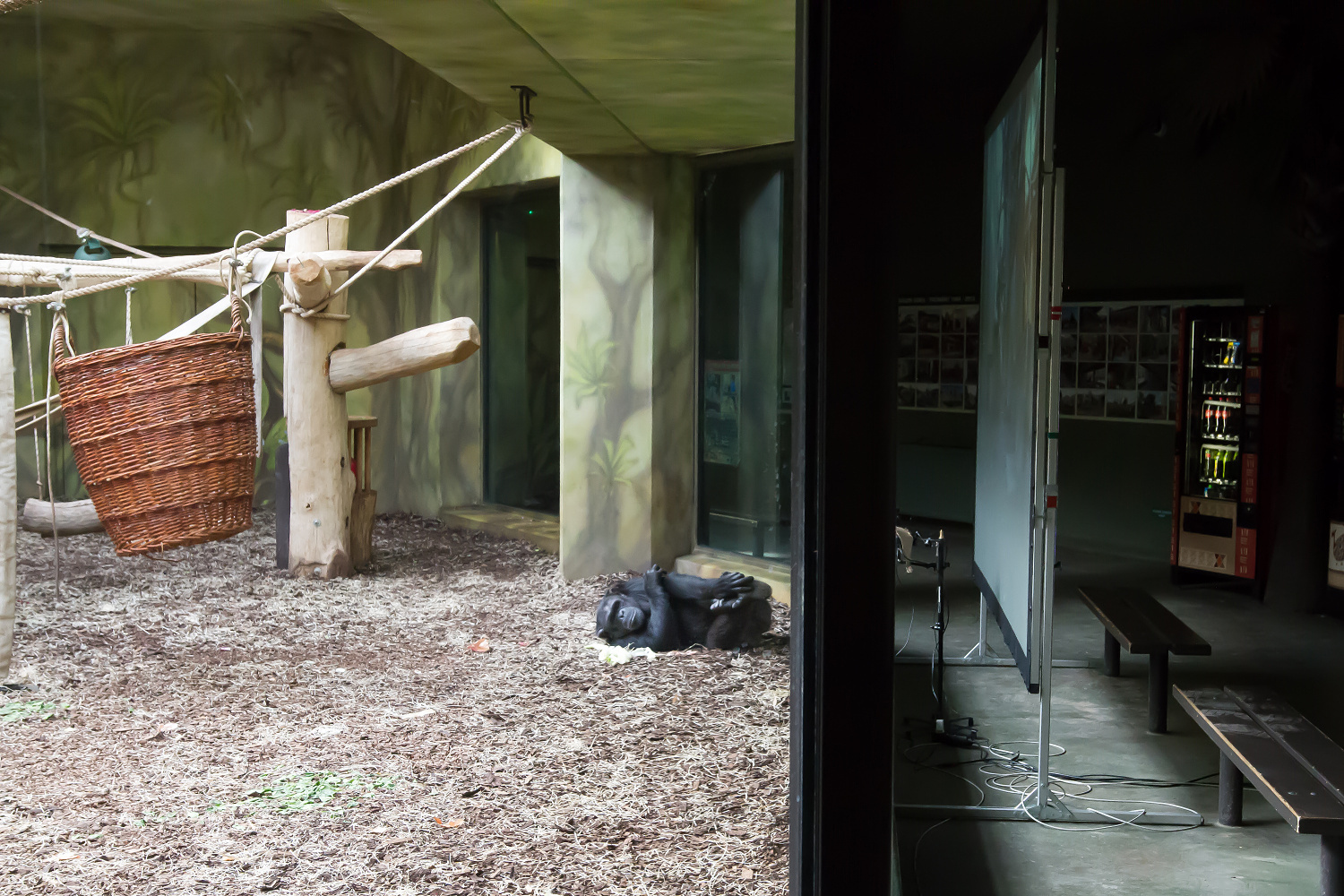Bored chimps at Czech zoos video chat during lockdown
It brings a whole new meaning to ZOOming.

Zookeepers at two zoos in the Czech Republic set up big screens in chimpanzee enclosures to allow their bored chimps to interact with each other via video calls.
The FaceTime experiment was set up to help stimulate the chimps, who have missed interacting with visitors during lockdown.
The screens were installed March 11 in the empty viewing areas at Dvůr Králové Safari Park and Brno Zoo. A two-way video call between the screens has allowed the apes from both zoos to see each other for up to 8 hours a day, although they were kept on mute.
So far, the chimps seem to be taking to the new technology.
Related: 8 human-like behaviors of primates
"The campaign has been a great success, and we can't be happier and more proud," Michal Šťastný, a spokesperson for Dvůr Králové Safari Park, told Live Science. "Even other zoos have decided to take the concept and work with it."
Intelligent animals
Zoos have the challenging task of keeping the most sociable and intelligent animals engaged and fulfilled.
Sign up for the Live Science daily newsletter now
Get the world’s most fascinating discoveries delivered straight to your inbox.
"Chimpanzees are very intelligent and therefore need a lot of stimuli to keep them active, agile and happy," Šťastný said. "The key is to keep coming up with new ways and sorts of enrichment every day to keep them busy."
Normally, zookeepers are constantly finding new ways to entertain the chimps and use a variety of toys, foods and equipment to challenge and entertain them. However, during lockdown, the zookeepers have found it hard to replicate the benefits the chimps get from interacting with human (and nonhuman) visitors.
"Chimps enjoy observing people and also their dogs, that are allowed in the zoo," Šťastný said. "Sometimes they enjoy little games with visitors, such as chasing them, howling at them and other regular chimp games."
Unfortunately, due to the COVID-19 pandemic, the safari park has been closed for months. "The zoo has been closed for almost 200 days," Šťastný said. "This project shows people that the zoo does not sleep and the animals need our daily care."

Successful screen time
FaceTiming with other chimpanzees seems to have partially replaced the stimulation the apes got from interacting with visitors.
"Anything new is very interesting for them," Šťastný said. "Especially during the first days, the group would carefully inspect what was going on."
The chimps clearly knew they were using a video, because they were constantly looking to see what was behind the screen, Šťastný said. But the chimps also seemed to understand that chimps and keepers on the screen could see them, too.
"Some of them would bring their own food to show off to other chimps as they would with regular newbies," Šťastný said. "The chimps also seem to enjoy watching the zookeepers in Brno do their work."
All six chimps at Dvůr Králové engaged with the video call at some point, but one young female, known simply as M, seemed more into screen time than some of the older residents were.
"Sometimes the chimps seem so interested in the screen that they refuse to move from one enclosure to another when the keepers need to clean it," Šťastný said.
Although FaceTiming has been a big hit at the zoos, the project is likely to end within the next two weeks, Šťastný said, because they anticipate the chimps will eventually get bored of it.
"The video streaming has been a big success, but in time, the chimp's attention is most likely going to fade," Šťastný said. "That is why the keepers keep coming [up] with new ways of enrichment every day."
Originally published on Live Science.

Harry is a U.K.-based senior staff writer at Live Science. He studied marine biology at the University of Exeter before training to become a journalist. He covers a wide range of topics including space exploration, planetary science, space weather, climate change, animal behavior and paleontology. His recent work on the solar maximum won "best space submission" at the 2024 Aerospace Media Awards and was shortlisted in the "top scoop" category at the NCTJ Awards for Excellence in 2023. He also writes Live Science's weekly Earth from space series.









